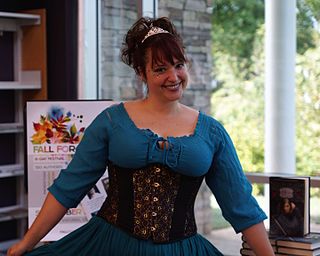A Quote by Charles Dickens
In a utilitarian age, of all other times, it is a matter of grave importance that fairy tales should be respected.
Quote Topics
Related Quotes
[Fairy tales] are like a journey to the woods and the many ways you can get lost. Some people say it's not a good idea to read fairy tales to anyone under the age of eight because they are brutal and raw. When I was a kid I often felt that kids's books were speaking down to me, but I never felt that way about fairy tales. They are bloody and scary, but so is life.
The children know all about everything so well that it never occurs to them to play at the situations in any one of these tales, or even to read it twice over. But let them have tales of the imagination, scenes laid in other lands and other times, heroic adventures, hairbreadth escapes, delicious fairy tales in which they are never roughly pulled up by the impossible —even where all is impossible, and they know it, and yet believe.




































